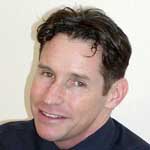commentary
Gay sex addict can’t sell real estate
Published Thursday, 01-Jan-2004 in issue 836
BEYOND THE BRIEFS
Thanks to a recent court case, you won’t have to worry about walking into an “open house” and finding the seller’s real estate agent chained to the lockbox, willing to do more than sell you the house to earn his commission.
The California Court of Appeal has upheld a ruling from the California Department of Real Estate, which rejected a realtor’s license to Fred Harden.
Fred had been convicted twice of lewd conduct in a public place. Not surprisingly, both convictions were based on his soliciting sex from male undercover police officers in public restrooms.
The two incidents occurred within months of each other, and it’s helpful here to point out how the police obtained the convictions.
In the first instance, which occurred at a public park in Oakland, Harden approached a plainclothes police officer, who was parked in a car near a restroom and playground. The officer suggested they go into the bathroom. Harden agreed and then, upon entering the bathroom, exposed himself to the officer.
The officer arrested him for lewd conduct in a public place. The court gave him probation for three years and told him not to go to that Oakland park again.
A few months later, Harden was at another park. He cruised a plainclothes police officer again outside a restroom. When the officer walked into the restroom, Harden followed and exposed himself to the officer.
The Contra Costa Municipal Court took Harden’s plea of “no contest” and required Harden to get counseling. And the court required him to “register as a sex offender.”
In February, 2001, Harden applied for a real estate license. After doing a criminal background check, the Department turned down his license.
The courts will always treat those who engage in truly public sex differently from those cases where the defendants have a limited expectation of privacy. California law allows state agencies, like the Department of Real Estate (DRE), to deny licenses to individuals found guilty of a felony or a crime involving moral turpitude.
Harden’s crimes were misdemeanors. But the DRE found that the crimes substantially related to the duties of a real estate salesperson.
Harden appealed his denial to an Administrative Law Judge. She found that the DRE was just because, as a real estate agent, Harden would have access to house keys.
She suggested that Harden could use the keys to get into a house and find unsupervised children.
On appeal to the Superior Court, Harden argued that his convictions did not involve children and that the finding of the DRE was based on homophobic stereotypes that gay men are child molesters.
The judge agreed with Harden that his offenses did not have a substantial relationship to the duties of a real estate agent. His crimes did not involve children and there was no proof that he was likely to engage in lewd conduct while on the job.
But, on appeal, the Court of Appeal upheld the DRE’s findings about Harden. The court found that Harden solicited lewd acts in public parks, where kids congregate. Because a court required Harden to register as a sex offender, this indicated to the court that Harden committed the second offense “as a result of sexual compulsion or for the purposes of sexual gratification.”
The case is unpublished, which means it cannot be cited as authority, but it will be consulted by attorneys for an indication as to how courts might rule on such cases in the future.
I’ve written before that police stings in parks, like the ones used in Harden’s cases, act to entrap gay men. Police use attractive younger cops to easily entice the usually unattractive men, who are grateful for the attention. Some argue that no crime would be committed if the police officers were not involved. That’s why San Diego’s new police chief has indicated that he doesn’t like sting operations and will prosecute public sex cases when citizens witness such activities and report the crimes. That’s fair.
The courts will always treat those who engage in truly public sex differently from those cases where the defendants have a limited expectation of privacy. And that’s the logic behind the appellate court’s ruling in the Harden case. Persons who seek out venues like public restrooms during the day, where children and others may be present, are likely to do anything in their hunt.
Because Harden displayed poor judgment and seemed to act on impulse, the court felt the DRE was reasonable in concluding he could not be trusted with keys to someone’s home.
|
|
Copyright © 2003-2025 Uptown Publications


